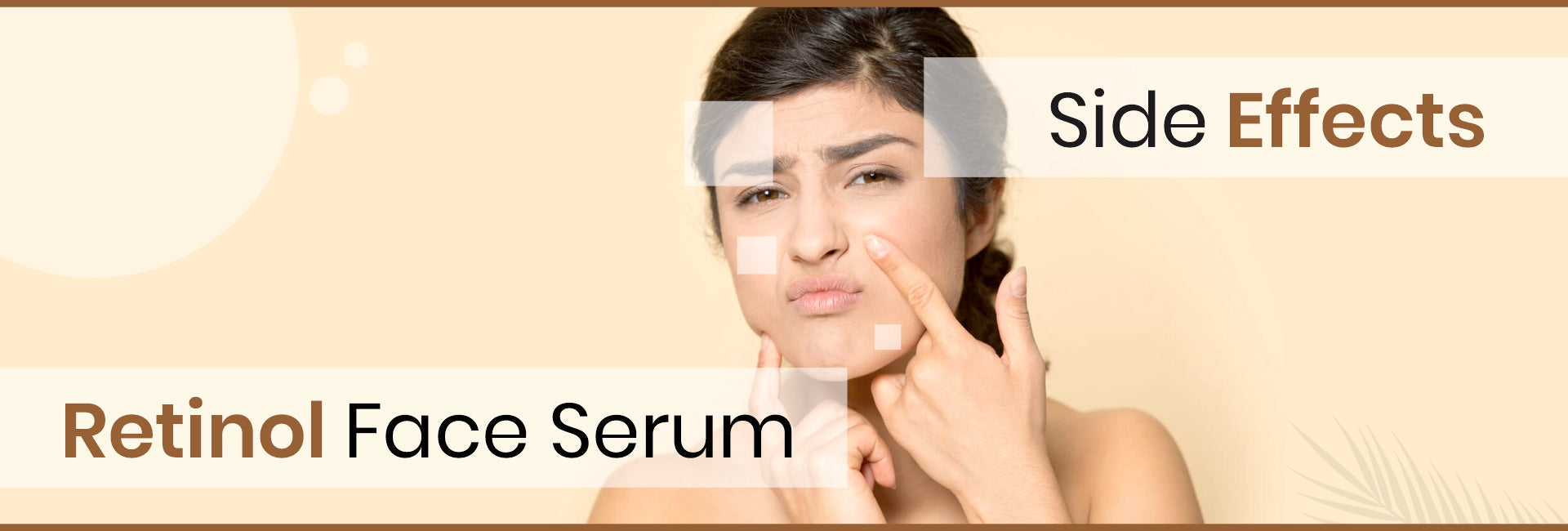Understanding Retinol Face Serum Side Effects and How to Manage Them
Retinol face serum is celebrated for its ability to transform skin by reducing wrinkles, fading dark spots, and improving texture. However, like any powerful skincare ingredient, it can have side effects, especially when not used correctly. Here’s a guide to understanding these side effects and managing them effectively.
Common Side Effects of Retinol Face Serum
1. Dryness and Flaking
Retinol speeds up cell turnover, often leading to dryness, peeling, or flaking in the initial weeks. This is a normal part of the adjustment process.
2. Redness and Irritation
Sensitive skin can react to retinol with redness, burning, or mild irritation. This usually happens when you start using it too frequently.
3. Increased Sun Sensitivity
Retinol makes your skin more prone to sunburn and UV damage. This is why sunscreen is essential during its use.
4. Breakouts
Some users experience initial purging, where clogged pores are cleared, leading to temporary breakouts. This typically subsides after a few weeks.
5. Skin Tightness
A feeling of tightness can occur due to the drying effect of retinol. While it’s usually temporary, it can feel uncomfortable.
How to Manage Retinol Side Effects
1. Start with a Low Concentration
Begin with a low-strength retinol (0.25% or 0.5%) to allow your skin to adapt gradually. Once your skin builds tolerance, you can move to higher concentrations.
2. Use It Sparingly at First
Apply retinol only twice a week initially. Gradually increase the frequency as your skin adjusts. This reduces the risk of irritation.
3. Always Moisturize
Follow up with a hydrating moisturizer after applying retinol. This helps to combat dryness and maintain your skin’s natural barrier.
4. Never Skip Sunscreen
Protect your skin with a broad-spectrum sunscreen every morning. Reapply throughout the day to guard against UV damage.
5. Avoid Other Actives Initially
Limit the use of exfoliating acids, vitamin C, or benzoyl peroxide while your skin adjusts to retinol. These can amplify irritation.
6. Listen to Your Skin
If irritation persists, reduce the frequency of application or take a break. Your skin needs time to adapt to retinol’s potent effects.
Who Should Avoid Retinol?
Retinol isn’t suitable for everyone. Pregnant or breastfeeding individuals should avoid retinol products, as its effects on developing babies are not fully understood. People with extremely sensitive skin or certain skin conditions, like eczema or rosacea, should consult a dermatologist before use.
The Benefits of Choosing a Balanced Retinol Serum
Opt for retinol products that include soothing ingredients, like hyaluronic acid or ceramides, to counteract potential side effects. For example, Volvet Vogue’s retinol face serum combines powerful retinol with hydrating elements to minimize irritation and maximize results.
Conclusion
Retinol can work wonders for your skin, but its side effects are part of the journey to healthier skin. By using it correctly and taking precautions, you can enjoy its transformative benefits without the downsides. Consistency and care will lead you to radiant, glowing skin.





Share:
Tips To Minimise Irritation While Using Retinol
Yes, Retinol Face Serum Is Safe When Used Correctly. Here’s How to Get Started